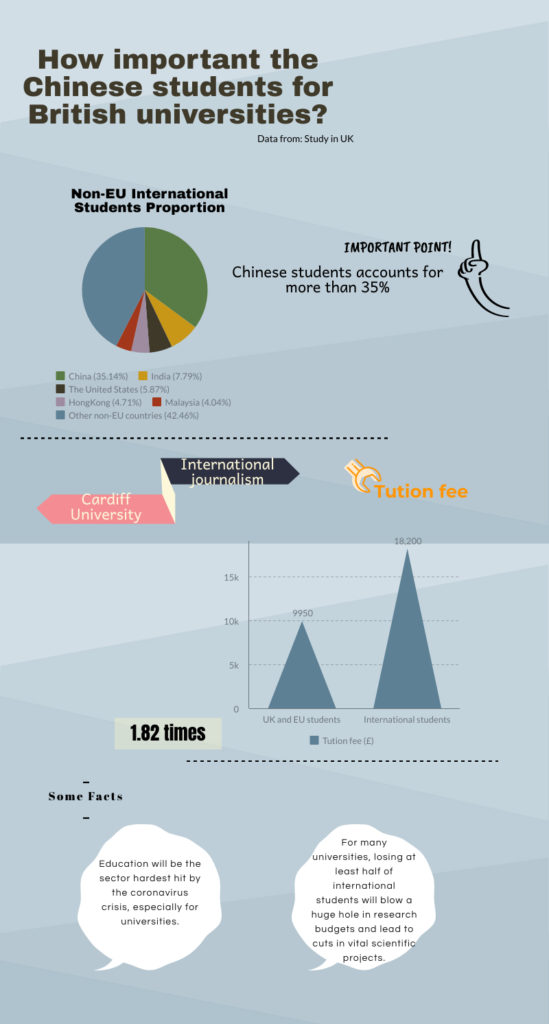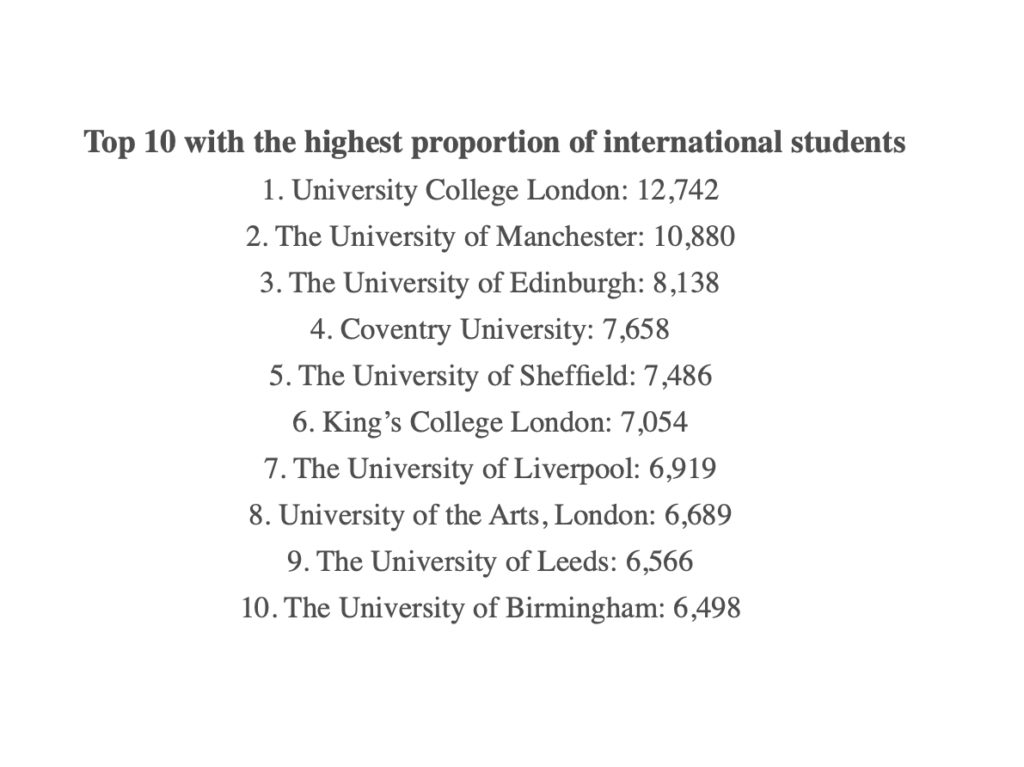The outbreak of coronavirus puts both British universities and international students at a risk, what should they do to deal with it?
The sound of the suitcase scraping on the ground pull her memory back to a year ago, the day she came to this airport. She dragged her two large suitcases laboriously from here and it was then that she began her life of studying abroad.
The 23-year-old Chinese student studying at Leeds university, Boning Zhang, suspended her MA course in a sudden at March because of the attack of the coronavirus in the whole UK.
“I never expected before that I need go back to China such early. Everything comes suddenly and I even have no time to say goodbye to my tutors and friends,” she says.
However, Boning is not the only one in the group of try to return home but she is the lucky one. Through 41h25min’s journey, which is four times as much as usual, she finally landed in China and began her 14-day quarantines.

According to the data from International Student Statistics in UK 2020, there are over 120,000 Chinese students receive higher education in the UK every year that ranked the first among international students. There are still a large number of students were stuck in the UK because of the shortage of flight tickets and the high price.
From De Montfort University, Chujia, Xu is a postgraduate student and she originally intended to return home in mid-May so that she can take an internship before finding a formal job. The flights she had bought before were being cancelled successively and she abandoned the idea of returning home recently, but she still have a lot of concerns living in the UK now.
She complains that she is living in a student accommodation and she has to share kitchen with her four other roommates, so it is impossible to do a self-isolation. For her, come to the UK is not just about studying, exploring local culture and contacting with people are more important. Chujia adds: “The last semester has lost the meaning of study overseas.”
Compared with them, the problem faced with Xudong is more complicated. He plans to go to Birmingham University and begin his MA course in September, however, a sudden outbreak of coronavirus and the behaviour of UK government put him in a dilemma.
“I followed UK news and paid attention to policies everyday since the virus spreading in Europe and I felt it was no longer safe for me to go there,”says Xudong.
It was his second year to apply for a mater degree of British university and the failure a year ago makes him cherish this opportunity more. “It is my last chance and I can’t tell you how excited I was when I receive my offer,” he says. Xudong’s parents are feel passive about the situation in the UK. Both of his parents are high school teachers, like most of the Chinese parents, they have high hopes on their son. Xudong says he has told his parents, the worst result is to have an online lesson for several months and it won’t delay his getting a degree, but his parents are still in a state of anxiety. For one reason, they are worried about the quality of online class, on the other hand, what concerns them most is the safety of their son.
According to a survey conducted by the British Council, of more than 8,000 Chinese students attend the survey, 39% who consider higher education in the UK said that they were undecided whether they should cancel their plans or not. A total of 22% said that they were likely to cancel their study plans, while 27% assured that they would further their study as planned.
In such a long time, British universities have been heavily rely on international students’ higher tuition fee to support some important research. The decrease of international students, especially the huge market— Chinese students group is undoubtedly bring a huge economic loss for British universities.

University and College Union (UCU) issued a report on April estimated that the Covid-19 pandemic will lead to an insufficient enrollment of new students in 2020 which resulting in a £2.5 billion funding black hole. What’s more, if the government does not intervene, an estimated 30,000 university jobs are at risk, with a further 32,000 jobs under threat throughout the wider economy.
“The reduction in the recurrent teaching grant will add to financial pressures on institutions already facing significant disruption caused by the Covid-19 crisis,” says Chief Executive of the Russell Group, Dr. Tim Bradshaw.
In this case, many British universities give them responds to the coming international students. The University of Manchester, the number of international students ranked the second in the UK stated that they will do all to ensure the pandemic won’t affect students to attend the university in the coming academic year. To make sure more international students can meet language requirements, they decided to receive various categories of language test apart from traditional IELTS and TOEFL. They also separate courses into lecture, tutorial, workshop and small group teaching to keep social distance.

Some other British universities like Bristol universities and York universities have decided to delay the start of the next academic year so that the coming students have sufficient time to consider and make an arrangement.
In addition, some British universities build their hopes on the government and strive for some supports that ensures the important research is carried out smoothly. They also began to think about ways to cut unnecessary cost.
A consultant from study abroad agency, Qiuyan says: “Although British universities respond actively for this challenging time and try to give them policies as early as possible, we still see a drop in applications this year.” She confirms that some offer-holders are still wait and see but some have to miss the boat due to lack of required language level.
Focus on this phenomenon, some people raised their doubts. Chris Polatch leaves a reply at an article about budget shortage of British universities during the Covid-19 says: “At some point not that long ago, universities became businesses, selling globally rather than being institutions set up purely to educate the UK population.”
The Covid-19 crisis indeed makes Britain’s universities to look again their funding systems, and even helps to relocate their role again.
